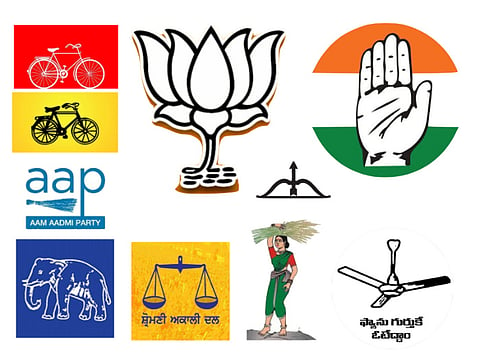Election Manifestos: Making a Mockery of Vital Electoral Activity
Somasekhar Sundaresan
We are the world’s largest democracy. We pride ourselves on having substantially “free and fair” elections term after term. Typically, every year there is some election somewhere in the nation. Yet, something as fundamental as an election manifesto is so poorly regulated that the entire electoral process borders on being a farce.
A fundamental element of a public contract is that the promise and reciprocal promises that create the contract are clearly understood, well communicated, and that the general public is able to take an “informed decision”. When a company raises public money through an initial public offering of securities, for example, it must write a “prospectus” that states what the company does, what it plans to do with the money raised and explains the risks associated with what is on offer.
Yet, when it comes to the mother of all public contracts — elections that decide who we put into government to rule our destiny (“serve us”, for the politically correct) — the regulation of the document equivalent of the “prospectus” is pathetic. Elections are regulated by the most-extremely empowered regulator in the nation — the Election Commission of India (EC), a constitutional functionary. Yet, the light-touch and hands-off approach to regulating such a vital piece of the public promise that lies at the core of elections has resulted in piquant and unacceptable outcomes.
It is in this year, at the fag end of the seventh decade of the Republic that the EC has imposed a 48-hour cut off for release of the election manifesto. While this is lauded as a reform, it also means that, according to the EC, 48 hours is all the time necessary for a voter to read an election manifesto, appreciate its contents, and take an informed decision about whether to vote for that party. Regulators with far lesser powers than the EC enforce far longer periods of time for appreciation of promises made in public offering documents. In a securities offering, the draft prospectus has to be posted online for the public to see what is being worked on.
Whatever be the promise in an election manifesto, after the election results are announced, there is nothing in the election manifesto that the party called to account for — except for a potential denial of a vote at the next election. No manifesto even pays lip service to the fact that regardless of contents, if political expediency so demands, the party may prune, truncate or even abandon the promises set out in the manifesto. In a nutshell, at the threshold, the manifesto means nothing. Election manifestos have never had caveats about potential “common minimum programmes”. If a company were to say in its prospectus that it is raising money for a certain purpose, but later uses the money for something else, there will be hell to pay.
No election manifesto has any content that shows in a single comparative chart or table, how the party in power performed as against its promises in the previous manifesto. A promise-versus-performance narrative is an integral part of every regulatory environment other than the regulation of elections.
In short, the election manifesto is a ritualistic document that no one really cares about. Neither the regulator, which only fixes timelines for its release, nor the electorate, that is supposed to be informed about the election promises all in one place, can be said to truly care about it. Perhaps a more truthful depiction of reality would be to abandon election manifestos altogether. However, do picture telling the capital market regulator that no investor reads a prospectus in any case and therefore one must not get carried away by the role of a prospectus. If you were to indeed believe in this statement, it would mean you truly believe that Sahara did not deserve an iota of the treatment meted out. The foundation of the case against Sahara was the non-issuance of a prospectus for raising funds from investors through issue of securities.
The story lies in the mockery that election manifestos have been reduced to. And indeed, in the lackadaisical approach of the regulator, and the attitude of the ignorant masses in the marketplace for votes. That some political parties are taking pains to engage in widespread public consultation to come up with a manifesto, is heartening. It would be abject apathy if the parties were to stop caring about even an ostensible manifesto. Yet, that day is not far, unless the umpire wakes up to the need to regulate this important piece of electoral activity.
This column was first published in the Business Standard

